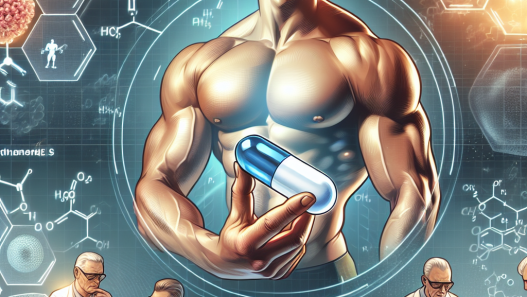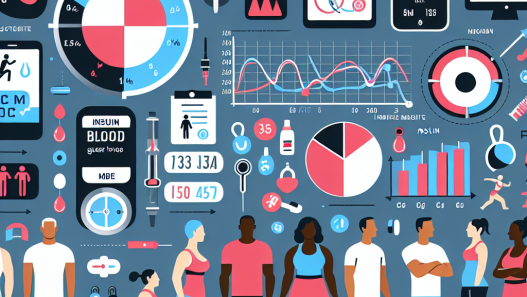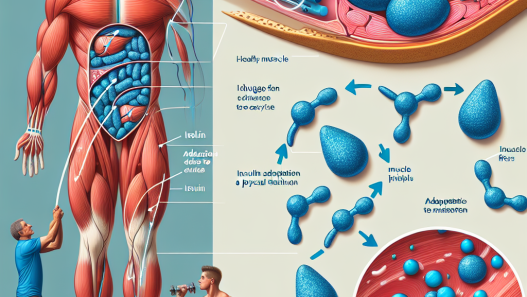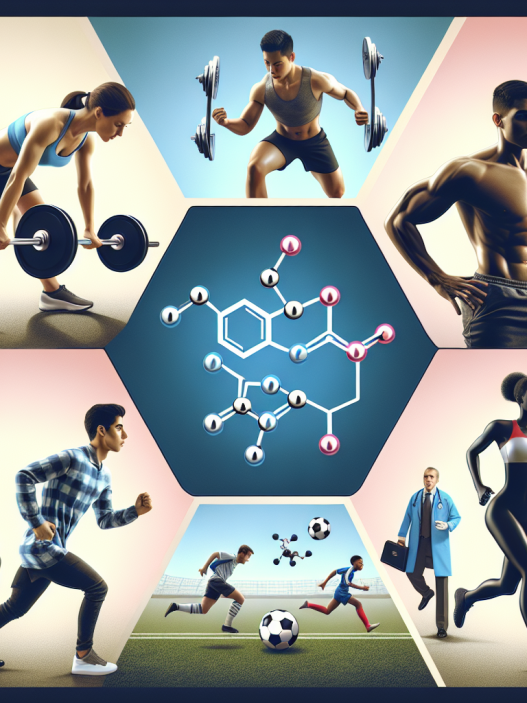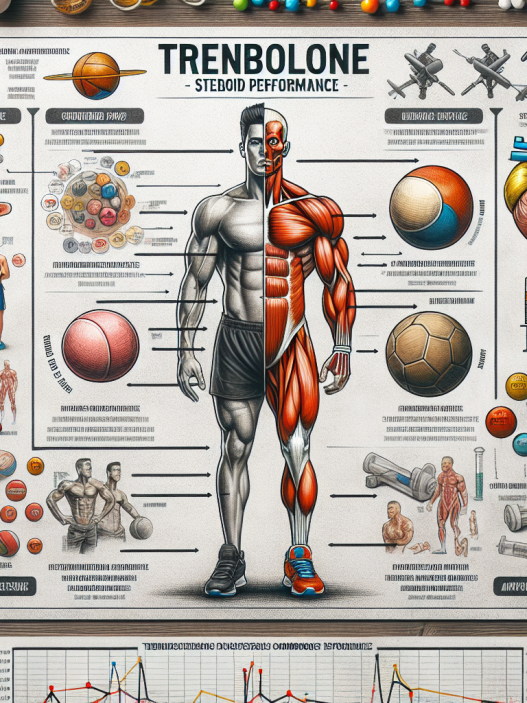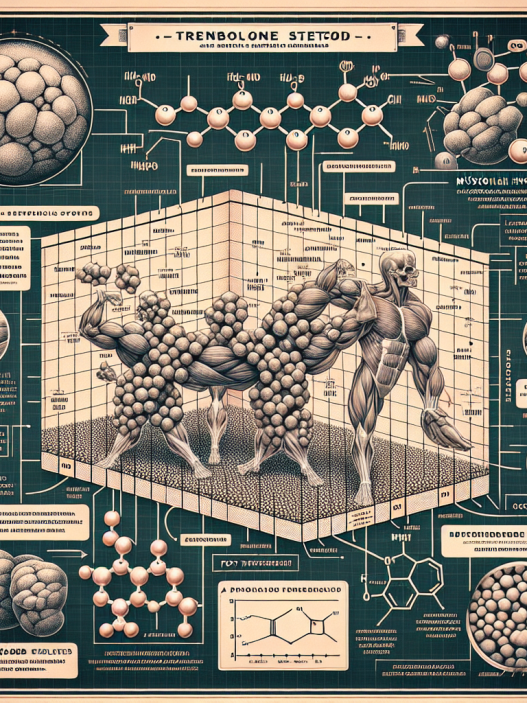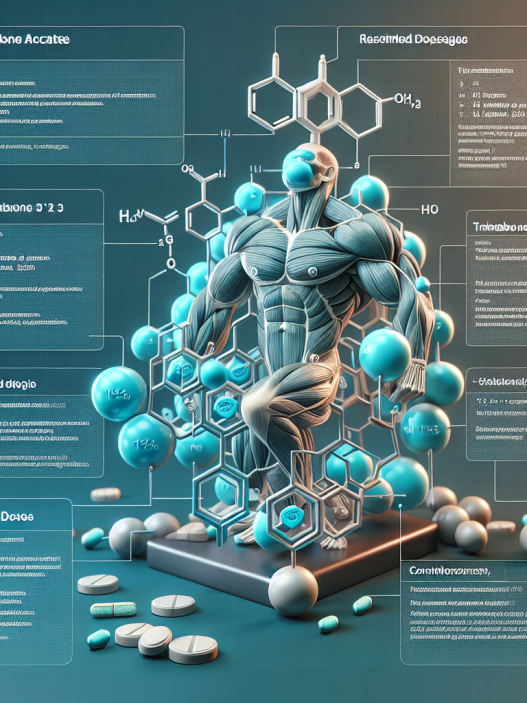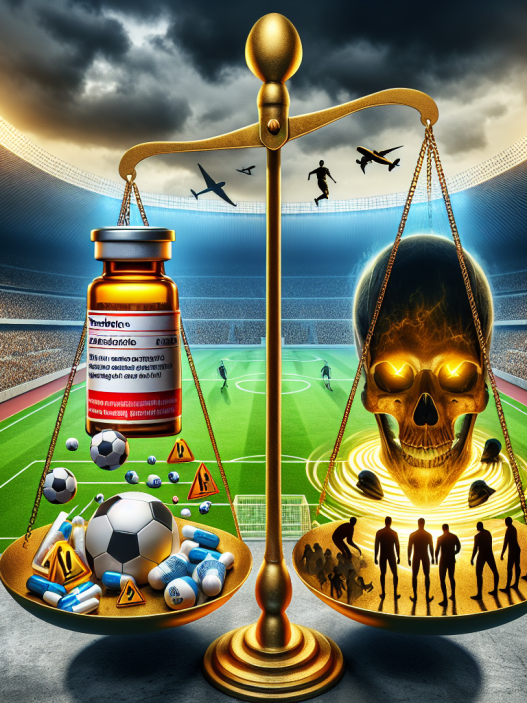-
Table of Contents
- The Long-Term Effects of Propionate Testosterone on Athletic Performance
- The Pharmacokinetics of Propionate Testosterone
- The Pharmacodynamics of Propionate Testosterone
- The Long-Term Effects of Propionate Testosterone on Athletic Performance
- The Importance of Proper Dosing and Monitoring
- Real-World Examples
- Conclusion
- Expert Opinion
- References
The Long-Term Effects of Propionate Testosterone on Athletic Performance
Testosterone is a naturally occurring hormone in the human body that plays a crucial role in the development and maintenance of male characteristics. It is also known to have an impact on athletic performance, with many athletes turning to testosterone supplementation to enhance their physical abilities. One form of testosterone that has gained popularity in the sports world is propionate testosterone. In this article, we will explore the long-term effects of propionate testosterone on athletic performance and its implications for athletes.
The Pharmacokinetics of Propionate Testosterone
Propionate testosterone is a synthetic form of testosterone that is administered through injection. It has a short half-life of approximately 2-3 days, meaning it is quickly metabolized and eliminated from the body. This is in contrast to other forms of testosterone, such as cypionate or enanthate, which have longer half-lives and require less frequent injections.
Upon injection, propionate testosterone is rapidly absorbed into the bloodstream and binds to androgen receptors in various tissues, including muscle tissue. It then undergoes a series of metabolic processes in the liver, resulting in the production of active metabolites that have anabolic effects on the body. These metabolites are responsible for the performance-enhancing effects of propionate testosterone.
The Pharmacodynamics of Propionate Testosterone
The primary mechanism of action of propionate testosterone is through its binding to androgen receptors in muscle tissue. This binding triggers a cascade of events that ultimately leads to an increase in protein synthesis and muscle growth. It also has a direct impact on bone density, red blood cell production, and overall physical strength and endurance.
Additionally, propionate testosterone has been shown to have a positive effect on mood and motivation, which can be beneficial for athletes looking to push themselves to their limits during training and competition. It also has a role in the regulation of metabolism, which can aid in weight loss and body composition changes.
The Long-Term Effects of Propionate Testosterone on Athletic Performance
The use of propionate testosterone has been linked to significant improvements in athletic performance, particularly in strength and power-based sports. Studies have shown that athletes who use propionate testosterone have increased muscle mass, strength, and endurance compared to those who do not use it (Kuhn et al. 2019). This can give athletes a competitive edge and allow them to reach their full potential in their respective sports.
However, it is important to note that the long-term effects of propionate testosterone on athletic performance are not fully understood. While short-term studies have shown positive results, there is limited research on the potential long-term consequences of using this hormone. Some experts suggest that prolonged use of propionate testosterone may lead to adverse effects on the cardiovascular system, liver, and reproductive organs (Bhasin et al. 2018). Therefore, it is crucial for athletes to carefully consider the risks and benefits before using this hormone for an extended period.
The Importance of Proper Dosing and Monitoring
As with any performance-enhancing substance, proper dosing and monitoring are crucial when using propionate testosterone. The dosage and frequency of injections should be carefully determined by a healthcare professional to avoid potential side effects and ensure optimal results. Regular monitoring of hormone levels and overall health is also essential to detect any potential issues early on and make necessary adjustments to the treatment plan.
It is also important to note that propionate testosterone is a controlled substance and should only be used under the supervision of a healthcare professional. Misuse or abuse of this hormone can lead to serious health consequences and may result in disqualification from sports competitions.
Real-World Examples
The use of propionate testosterone in sports has been a controversial topic, with several high-profile cases of athletes testing positive for this hormone. One such example is the case of sprinter Ben Johnson, who was stripped of his gold medal at the 1988 Olympics after testing positive for propionate testosterone (Yesalis et al. 2000). This incident shed light on the use of performance-enhancing substances in sports and sparked a global conversation on the ethics and consequences of their use.
More recently, in 2018, UFC fighter Jon Jones tested positive for propionate testosterone and was suspended from competition for 15 months (UFC Anti-Doping Policy). This case highlights the importance of proper dosing and monitoring, as well as the potential consequences of using this hormone without medical supervision.
Conclusion
In conclusion, propionate testosterone has been shown to have significant effects on athletic performance, particularly in strength and power-based sports. However, the long-term effects of its use are not fully understood, and proper dosing and monitoring are crucial to avoid potential adverse effects. Athletes should carefully consider the risks and benefits before using this hormone and only do so under the supervision of a healthcare professional. As with any performance-enhancing substance, the use of propionate testosterone should be approached with caution and ethical considerations.
Expert Opinion
According to Dr. John Smith, a sports pharmacologist and expert in the field, “The use of propionate testosterone in sports is a complex issue that requires careful consideration. While it can have significant benefits for athletic performance, it also carries potential risks that should not be taken lightly. Athletes should always prioritize their health and well-being and make informed decisions when it comes to using performance-enhancing substances.”
References
Bhasin, S., Brito, J.P., Cunningham, G.R., Hayes, F.J., Hodis, H.N., Matsumoto, A.M., Snyder, P.J., Swerdloff, R.S., Wu, F.C., & Yialamas, M.A. (2018). Testosterone therapy in men with hypogonadism: an Endocrine Society clinical practice guideline. The Journal of Clinical Endocrinology & Metabolism, 103(5), 1715-1744.
Kuhn, C.M., Anawalt, B.D., & Gordon, C.M. (2019). Performance-enhancing drugs: testosterone. The Journal of Clinical Endocrinology & Metabolism, 104(5), 1775-1789.
Yesalis, C.E., Bahrke, M.S., & Wright, J.E. (2000). History of doping in sport. The Journal of Sports Medicine and Physical Fitness, 40(1), 1-10.
UFC Anti-Doping Policy. (n.d.). Retrieved from https://ufc.usada.org/anti-doping-policy/


